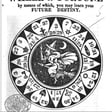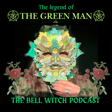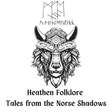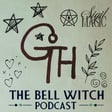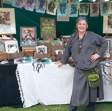Introduction and Network Promotion
00:00:00
Speaker
Darkcast Network, bringing our indie podcasts out of the shadows.
00:00:42
Speaker
greetings witches and beautiful souls. Swales back with ah another amazing moot loot for the month of October spooky season. I gave you two episodes last week in hope that you might send me a little vote for this amazing little competition I've entered for the best documentary and news podcast Still time to vote for that, if you could, that'd be awesome. I will link the show notes below.
Interview with Sarah Parks Announcement
00:01:10
Speaker
This is a Mootloot again, I recorded a long time back, probably Maytime, with Sarah Parks, who is a lovely lady and all-round good egg. She knows stuff about parenting and co-regulation, the magic of relationships really. Relationships in social situations and
00:01:32
Speaker
relationships with your kids. It's a really good listen and I appreciate it's not so much witchy. It'll always have a witchy element but I'll always have the parent inside of witchcraft present in my own witchcraft journey and my own growing and learning.
Balancing Parenting and Witchcraft
00:01:48
Speaker
and it feels like really good timing because i've just written my last column for pagans of the north which was all about witching with kids my children are a big part of my life and i'm learning to be a good parent always i've had a really good year with them learning all this co-regulation stuff and how to be a better parent and how to make a better decision and let stuff go and be a good paganite as well you know combining paganism, witchcraft and parenting all together is a huge part of who I am and will always be a little bit in the podcast and to begin with it was about witching with kids that was the idea of this podcast and it's progressed into just
00:02:30
Speaker
general witching and this little underlining theme will always weave its way through the bed of the podcast as it becomes a glorious magical quilt of witchy wonders.
00:02:45
Speaker
So I hope you enjoy it and it might be worth listening to even if you're not a parent just because there's a little gems of wisdom in there about co-regulation and maybe understanding others that are suffering a little bit and we don't know how to interact with them. So yeah,
Supporting the Podcast
00:03:00
Speaker
in enjoy this podcast and I will see you next week for the last instalment of the spooky season moot loop bonanza and then it'll be back to normal schedule every two weeks one moot loop and one solitary witch episode if you'd like to support me for out this you can do this in a number of ways you could join my patreon for a little as a pound a month you could leave me ratings and reviews wherever you listen to your podcast and if you're feeling a need to tip your witch you can do so at buy me a coffee dot com or you can just
00:03:35
Speaker
Tell everybody you meet who may listen to podcasts, who loves a witchy pig in alternative lifestyle and recommend the Bell Witch podcast.
00:03:47
Speaker
Right, here we go. Here's another Mootloot guest on the Bellwitch podcast. Sarah Parks. Hi, how are you doing? Hello, it's lovely to be here. Welcome to the show. We got linked up
Meet Sarah Parks: Conscious Parenting Coach
00:04:00
Speaker
via the lovely Leanne, who's one of the podcast's super fans, my little cheerleader. She's always there going like, how about this, how about that? And so she's linked us up. So I'm drinking a nice cup of tea, you know, on her.
00:04:13
Speaker
Nice. And I saw your teapot, which is absolutely gorgeous. Oh, it's right, Posh. It's the whole cup and sauce of shebang and like loose tea leaves and Leanne will appreciate that. Very nice. Homage to Leanne. A homage. Do you want to tell us a little bit about yourself and what you're going to talk to us about today? Yeah, so I'm Sarah Parks. I am a conscious parenting and living coach.
00:04:43
Speaker
And I live in Scotland in Edinburgh with my two kids and my husband. I have just really come on the podcast to talk about life and I suppose talk about this aspect, this sense of sort of conscious living and living outside of the box, I suppose, or the the kind of mainstream.
00:05:06
Speaker
I thought would be an interesting topic to to talk about.
Understanding Co-Regulation
00:05:10
Speaker
And I feel like that really fits in with this podcast, but also in with the sense of when you're somebody who is outside of the the kind of mainstream, it's easy for people to misunderstand. And I think, you know, this is a ah witchy podcast and I think witches have always been misunderstood. Yeah, absolutely. Yeah.
00:05:34
Speaker
I've got the magic of co-regulation written down. Wow, happy now. No idea what that's about. Well, that's great. I'm glad you've got that written down. Can you tell I've forgotten that that's what I'm going to talk about? The magic of co-regulation. That as well. That as well. That's all part of it. Cool. That is all part of it. So I will absolutely talk about the magic of co-regulation
Witchcraft in Family History
00:06:00
Speaker
because it really is, it really is magic or it can feel like magic.
00:06:05
Speaker
but actually it's actually science. Oh, I like a bit of overlap. Although I have to say, I am not a researcher and I am not a scientisty. Teased. I am a scientist at all. I really learned more on the creative side of things. However, you know there are certain universal kind of laws right that we're subject to on this planet.
00:06:32
Speaker
the magic of co-regulation is connected to one of those. So I will talk about that. Okay. And you're a witch. Don't actually call myself a witch, I'll be honest. I do sometimes, yeah but I don't really call myself a witch. I suppose I'm not deeply witchy, although I will say, well, I am a witch really. I think we all we all are a little bit, aren't we? Yeah, we're all a little bit witchy.
00:07:01
Speaker
And I think part of the reason for that is because like I've never never been mainstream. you know I've never fitted into
The Importance of Conscious Parenting
00:07:10
Speaker
the into the boxes. I was talking with my mom a while ago and her grandmother used to look after her when she was young and was you know she was like the ah kind of local herbalist really. you know People came to her and she would mixed, she had a garden and she would go and collect the local roots and and seaweed and all kinds of stuff and make tinctures and all sorts of stuff to help them heal, you know. I do kind of feel like I come from a bit of a witchy line. Yeah, yeah, routine. I've met some women maybe. My mum is originally from Jamaica, so that this is her Jamaican grandmother, right, who was actually part Spanish as well. So a bit of mixed heritage there, which is probably very common on a
00:07:58
Speaker
an island that you know was heavily populated during slavery and people were brought from all kinds of places. you know Yeah. I mean, I noticed when you just give it a call then that you had the little silver goddess on. Yes, I absolutely have a goddess. And I were like, oh, I've got a little silver goddess on as well. So I say I'm not witchy, but um you are really. I often have a goddess on. So deep down I am, really. Yeah. But it's interesting because I suppose I'm i'm not so overtly witchy. You know, I don't describe myself
Challenges in Parenting Styles
00:08:31
Speaker
i'm I'm certainly spiritual and very much lean that way for sure. and So the magic of co-regulation. So like I said, I'm a conscious parenting and living coach and and that's really following a path of awareness really of being aware of ourselves and how we want to relate to our children and very much a kind of gentle kind of parenting parenting approach and and conscious parenting approach. Basically the aim of of this kind of style of parenting is really to love and accept your child the way they are for who they are and yourself. That's the basis of it really is love and acceptance and trying to live in a way that allows you to be as fully yourself as possible.
00:09:28
Speaker
you know, and your child, which is a real challenge. You know, it's such a challenge because that's not how within our society that that parenting is has been traditionally viewed. And so I think there's a lot of there's a lot more awareness of these kind of these ways of parenting now
Impact of Co-Regulation on Children
00:09:50
Speaker
and a lot more people wanting to parent in gentle, conscious, positive,
00:09:55
Speaker
karma ways, you know, there's so many names for essentially the same thing, you know, positive parenting, unconditional parenting, or all of these different terms, which is essentially the same kind of thing. And, you know, what we come up against is how we were brought up our ourselves and what the mainstream society is doing. So although, you know, the approaches that I use have been around for a very long time and some of the tools that I learned from and resources that I use and share and and encourage people to add to their toolkit have been around since the 70s, right? But like many things, I'm actually quite shocked still that it's not more mainstream. And I forget because I'm so in this world, right? I'm so in this way of doing things and with my own family, helping other people, supporting other people,
00:10:53
Speaker
who want to take this kind of approach that I forget. I forget that not everybody knows about this, you know,
The Law of Resonance in Parenting
00:11:00
Speaker
that not everybody is doing that or understands fully what it is so that, you know, people are trying not to shout at their kids and and talking a calm voice and things like that, but it's way more to it than that. you know So this this topic today, the magic of co-regulation. So I talked about that the sciency bit, right? So I'm gonna dive into the sciency bit.
00:11:25
Speaker
yeah So essentially, when like everybody knows what a vibe is, right? You go into a room, you can feel the vibe. And if somebody gets upset,
00:11:38
Speaker
you know, it can feel like a downer, it can feel like it's dragging you down, you know, somebody's really upset or whatever. And that's because we energetically resonate
Parenting Challenges and Trauma
00:11:50
Speaker
with each other. What happens with our children essentially is, and with other people that we're, you know, in proximity to, we either join them where they are, or they start joining us where we are. And that is co-regulation. So essentially, we start resonating at the same level, really. When our children are born, when they're babies, they rely on us for survival by co-regulating to their parents, right, especially their mother, to the point of their heartbeats, you know, kind of syncing with us. So they need that close contact, they need
00:12:34
Speaker
yeah And they're constantly looking to the the the caregivers around them to see, well, how is it in the world? how you know What's safe? What's not safe? But also how to feel about things, which is why, when and you
Balancing Past and Present in Parenting
00:12:50
Speaker
know if a child bumps themself and you're like, oh my God, that's awful. That was really hurt. and to ah then they take their cue from you to go, oh, that must be really hurt. And when things hurt, we cry and duh, duh, duh. And so, you know, they're they're taking that cue. Whereas if your child bumps themselves and you're like, oh, that must have hurt. Let's give it a rub and then off you go. Then they're like, oh, well, that's not a big thing. So we're going to carry on. So there's it happens in little, little ways like that is kind of co-regulation.
00:13:29
Speaker
But where it's really magic is when parents know actually that you're far more powerful than you think you are, when you understand that you actually can influence the people around you, you can support them to regulate. So you can
Adopting Gentle Parenting Styles
00:13:50
Speaker
bring the calm, you can bring the, you know, the good vibes so that they calibrate to you.
00:13:59
Speaker
Equally, we can calibrate to them and end up, they get upset, we get upset, there's, everybody gets upset and it all explodes. And I call that adding fuel to the fire. There's a fire going on over here of upset, right? And we join it and we add fuel to it and that makes it explode, right? Instead of things getting better, it gets worse. So we've all kind of experienced that, right? Where instead of things calming down, the upset increases and that's when we're co-regulating with our child or with, the you know, doesn't necessarily have to be a child that's gone upset, right? That's when we're co-regulating to them. And so the law that I was talking about is the law of resonance, that we resonate on the same kind of frequency. What I think is magic about this is when people know,
Personal Growth in Parenting
00:14:50
Speaker
when people understand, ah, right, okay. So I'm not actually at the mercy of everything that's happening. If I can,
00:14:59
Speaker
regulate myself and manage my own triggers and what have you, then I can support and influence my child and the people around me. And that is magic and that's powerful. I cannot believe how much I relate to this. I am always working really hard to not pass this because my I used to irritate my mum just by being there.
00:15:26
Speaker
and I'm really aware of it and I do suffer with it as a parent myself. So my whole my older one really picks it up because she's super good at seeing between the lines and you know she knows what's going on. She's only eight, she's really clued up and she mirrors me so often with just a couple of mirrors just like bouncing off each other and I'll talk to her and she'll get so icy with me and I'm just like you're icy because I'm icy with you so I'm gonna let it go.
00:15:53
Speaker
Yes. That's such a great observation. Yeah, because I mean, we've heard it said a lot of times probably that we are mirrors of each other. And it's so true. So I think when as parents, we understand that and we've got to go first, this is the really o
Supporting Techniques for Parents
00:16:10
Speaker
hard bit of parenting actually, is that we've got to go first, instead of expecting our children to let it go, or be the the adult, as it were, in the relationship. We've got to be the ones to let it go. You know, we've got to be the ones to recognize, oh, right, actually saying something right now about this is going to add fuel to the fire instead of improving it. So
00:16:35
Speaker
I just need to just take a moment or take a breath or you know. I mean because sometimes I still feel like that little kid because there's a lot of trauma that's being passed down. I mean because my mum's parents were like wartime parents. They grew up with children should be seen and not heard and yeah you know manners make everything better and you know like money's tight and So my mum was a a real almost victim of it, you know, and she passed that down to me. But then also I was a young carer when I was less than Florence's age now, my my eldest daughter. And I did everything, you know, like I looked after my nan, he was elderly, she was housebound. I was really in a house and I was paying bills and I was going to post office for my nan's gyro and stuff. Like Florence don't even wash up and she gets annoyed with me, you know, when I ask her to do something like put your shoes away.
00:17:26
Speaker
And then she goes like, no, it's so fair. And my inside I made him go like, you've no idea when I was your age, I was in the house. I have to catch myself and go, yeah, but that was so wrong and abnormal. It was a good thing. And, you know, I love what you're talking about here because it is this sense of, I think one of the things people struggle a lot with, um, gentle parenting or conscious parenting, is that swinging from one extreme to the other. So like with you, you know, you were in one extreme of,
00:17:55
Speaker
you know, having to run a house, be a carer, do all these things, which it isn't fair for a child to be expected to do all of those things. It's, you know, it's too much, you know, and it can be easy to swing the other way because, you know, we we don't want our children to experience some of the hardship that we experienced, etc. Therefore, we protect them.
00:18:21
Speaker
And then you know we've got you know situations, sometimes I've worked with parents whose children are leaving home and you know
The Lifelong Journey of Parenting
00:18:30
Speaker
they' they're not really that well equipped for being out in the world. You know we can swing from one one extreme to the other. And I think that is the challenge when we come from this place of, well, I don't want my children to have the hardship that I had or to experience what I did.
00:18:51
Speaker
to to kind of check in with what what do you actually want outside of trying to move away from that, the pain of that for yourself and trying to compensate for that and avoid your child having the same kind of experience. What is the vision actually of what you want? And that's part of the work that I do with people kind of one to one and in my in my mastermind as well is for people to be thinking about, well, having this awareness around their own triggers, but also that the past stuff that they're compensating for. So
Reflections on Personal Growth
00:19:30
Speaker
that's not running your life, if you see what I mean, and your decisions and how you do things. So you've got freedom from that, because it's not a bad thing. You know, it drives a lot of stuff. I mean, it's probably driven my whole business. You know, in my journey with gentle and conscious parenting,
00:19:47
Speaker
is totally because I want my children to experience some of the things that I experienced. So, you know, I was looking for, well, how do I want a parent? How how do I want to do this? And then I found all this stuff. And then, you know, my eldest is 15. So sort of when she was kind of one years old, I started. So it's like 14 years of really walking this path.
00:20:13
Speaker
It is hard. It's a battle every day. It's like, you learn on job, don't you, apparently? And was surprised
Self-Care for Parents
00:20:20
Speaker
just how it didn't come to me, you know, really naturally. I i really struggled earlier on when she was born a year ago. And then my second one, I think I did a lot of things different and it shows in the behavior and the just who they are.
00:20:36
Speaker
Well, this is such a pessimist and I'm always trying to get to do gratitude when we walk to school and smell the flowers. We're pagans, let's be pagan.
00:20:51
Speaker
Yeah, oh it's interesting, isn't it? Well, there's that saying, when we know better, we do better, right? It's a Maya Angelou quote, I think, isn't it? And it is that all the time, it's one of the best quotes.
00:21:02
Speaker
And so, you know, we have to be really kind to ourselves. It's such a hard job. It's such a hard job. There's no manual.
Evolution of Parenting Approaches
00:21:10
Speaker
You've got to work out how to do it. There's lots of different conflicting advice and ways of doing things. You know, use an auto-step, don't use an auto-step, blah, blah, blah, you know, all this different stuff. And you have to decide on what what path you're going to follow, what it is. Does it feel okay for you to do things in certain ways?
00:21:31
Speaker
Does it work for your child? Because the way you all might wanna do things might not be what they're into. you know They might not be into doing gratitude and it's like, it's great. They might not be into it. It's like meeting them where they're at as well and honoring ourselves as well. And oh, there's just so much to it. right So much to being a parent and and' finding our way with it.
00:21:58
Speaker
I always apologize because I say, you know, like, I'm really sorry I messed up there. That's a big deal when I was growing up. My mum never, ever apologized. Do you think it's a thing of the era? Yes, definitely. Because you know what? My parents never apologized either and they would do some really rubbish things and
Sarah's Journey into Coaching
00:22:20
Speaker
just never, never said, oh, sorry, I, you know, I messed up or I made a mistake there or And I have to say as a child, I think I often felt like I was being blamed for these things because, you know, they get annoyed, but they wouldn't say, Oh, you know, that was my mistake or whatever. No, it's definitely a generational thing. Yeah. I have to say, I'm really loving being on here and hearing your accent. Oh, thank you. It's a selling point. Yeah. Because, um, I lived in Leeds for 16 years.
00:22:53
Speaker
And that's where I lived before moving to Edinburgh, where I am now. So I just love hearing a Yorkshire accent. Introducing the Jasper Cacao Project, your gateway to spiritual enlightenment through the power of cacao. Jasper Cacao is ethically sourced, fairly traded, organically grown and crafted with love to bring you a truly transformative experience.
00:23:17
Speaker
The Jasper Cacao Project honours this ancient tradition by offering you the purest form of cacao free from additives and preservatives. With every kilo sold Jasper Cacao, donate funds to the UK
Influence of Early Life on Parenting Philosophy
00:23:30
Speaker
charity Plant Your Future, enabling farmers to sustainably grow their crops in the most eco-friendly way. Check out my bio for a discount on your first purchase where you will receive 15% exclusive affiliate discount. Expand in love with every sip.
00:23:46
Speaker
you know, I can tell you a little bit more about how I got into doing what I do. I mean, I've i've hinted at it a little bit with, you know, my, I suppose, my sort of background. I think the biggest thing for me was this sense of wanting to make sure that my children had a secure attachment really from a young age. You know, I'm obviously aware that the first seven years of a child's life is really very important time when they're kind of personalities forming and how they view the world is is forming. And so that first seven years is is really important. For me, the first seven years of my life was a bit turbulent, you know, and moving about. And I also had some time where I didn't live with either of my parents, which I think was very ah difficult, ah kind of in an unofficial kind of foster caring kind of situation.
00:24:47
Speaker
Yes, I think really difficult not to have your
Modern Parenting Challenges
00:24:50
Speaker
mum or your dad there. And I think children are resilient and there is an impact from from these things. And so, you know, I suppose I knew I very much wanted my children to have to feel kind of secure or and to feel like they had consistency, I suppose, particularly in those first seven years. And, you know, it and it is something that that they they've really benefited from, I think, that wasn't the case for me. And so that was a real driving force behind what I do and um the the approach for myself, and my family, but also I help parents get these kinds of approaches really working for them, because it can be tricky. I i mean, I mentioned earlier about this thing of, okay, so, you know, I don't want to do it like that. I don't want to do it like my parents did. And
00:25:46
Speaker
punish my children and take things off them and all this kind of stuff. Although so I know some people still do that, but then you're like, but what what what then what can I do then? How can I get them to
Reality vs Expectations in Parenting
00:26:00
Speaker
you know cooperate? Or how can I ah get them to be like a part of the family who you know helps out and all of that kind of stuff? you know It really takes learning some skills. And yet, like you said,
00:26:15
Speaker
it didn't come naturally to you and that's one of the myths. People think that parenting is gonna come naturally to them or should come naturally to them. So I think it can be challenging to ask for help because there's this expectation that you should naturally know how to do it and you should automatically somehow know how you wanna parent when there's so many different ways. I mean, you wouldn't go and do any other role and expect to know all about it without some training, right? yeah Even doing this, doing ah a podcast, you've had to learn
Self-Awareness in Parenting
00:26:50
Speaker
stuff. You've had to train a bit for it, you know, to learn how to edit and all these things. It doesn't just happen.
00:26:56
Speaker
And parenting's the same. There's just a worry that you're going to mess your kids up. I mean, that's probably every parent's biggest worry, like, oh my God, what we've done to them and messed them up. But like I said, kids are resilient, aren't they? And as long as we make an effort to maybe discuss it with them.
00:27:12
Speaker
they're not so right to make mistakes because after the learning is you make mistakes, we're human, we're allowed to make mistakes, can't be perfect first time. I make a big song and dance about asking for help because my eldest doesn't, you know, she gets cross with herself because she's not perfect first time. It's like, where's that even come from? I have never been that person, not as a mum anyway. Some are like, it's coming through the bloodline or something. It's really weird. This expectation to to be
Societal Pressures on Parents
00:27:40
Speaker
be perfect is it's it's really It's really unhelpful. So there's a couple of things you talked about there was this the perfection thing, but also the messing the the fear of messing your kids up. There's a lot of pressure on parents and a lot of emphasis. And when things don't go well, parents get blamed, right? yeah and If they're not behaving at school, parents get blamed. It's like they're spending more time at school than they are at home in a week when the while they're at school.
00:28:10
Speaker
I know. A lot of the time they're sleeping, so. But even at school recently, they had to talk about attendance in our school and it's like 94%, which is amazing. And she came home and said, oh, the headmaster told us off for not having a good attendance. I said, well, ah how big was
School Pressures and Parental Responses
00:28:30
Speaker
it? She said 94%. I was you it like, what? No.
00:28:33
Speaker
Have you got the wrong end of the stick here? So I don't know if she heard it differently or because in her edges that we can do better. Well, maybe that's what they've said. but dna It's weird. I think they're under pressure as well because, you know, they're under pressure to have attendance high. And because that is kind of a goal set it externally as well, somebody's bright idea to increase attendance is to punish people.
00:29:03
Speaker
this punishment model right for lower attendance. So I don't know if the schools get punished and then they pass punishing that on to parents you know for their children not being able to attend. So I think when children are struggling with attendance and with with going
Mental Health and Emotional Support for Children
00:29:20
Speaker
to school and anxiety-based school avoidance and things like that, I think sometimes that that there there can be a lot of pressure on on parents and threats of fines and things like that, which threatening anybody, yes, it might change their behavior, but it's not a great way of doing it. You hold a gun to somebody's head, they will cooperate with you. like sorrow how you want to It's crazy that that's the go-to method. Instead of supporting people and finding out what's you know what what's challenging, what what's difficult. and
00:29:56
Speaker
Yeah. So that, I mean, that's a whole other topic. It just made me really cross, I think. Yeah. I give her mental health days, you know, when she wakes up sad and she just wants to sit with me and cuddle me all day. It's like, yeah, let's do it. You know, my
Normalizing Parenting Mistakes
00:30:10
Speaker
mum would never ever let me have a day off on this. I was probably sick and dying. Yeah. Yeah. And actually it's this lack of awareness or acknowledgement that, you know, your mental health is as important as your physical health.
00:30:25
Speaker
But yeah, circling back to this fear of messing up our children, there's a lot of pressure to get things right as a parent with no definition of what right is. like and Impossible task. But you know, as humans, we're going to struggle with stuff. We're going to have things that happen that are traumatic experiences that we then need to learn how to process.
00:30:53
Speaker
It's not about avoiding having experiences because for just one person, they'll have um something happen that feels like a massive trauma, that feels also, you know, in our society's view, is a big thing. Like, I don't know, a parent dying or something like that, something big, right? But they're also what can be deemed to be little things that people are gonna have trauma from, like they're, I don't know,
00:31:22
Speaker
their parent being late to pick them up, for instance, you know, it could be all all kinds of things. And it's not about we're human, we're going to have reactions, we're going to feel triggered by things. It's not about trying to eliminate all triggers ever, because that's impossible. Nobody's ever going to be able to do that. But it's about having tools and learning how to process those things, to learn how to work through that and understand
Managing Societal Expectations
00:31:50
Speaker
what was going on, understand how you feel and acknowledge that is massive. Acknowledging those feelings is so crucial and so key for and not being alone with them. And that's the biggest role that parents play is not trying to remove all hardships and remove all awful things. Of course, that's our natural response. We want to do that for our kids. We want to protect them.
00:32:18
Speaker
And we can't, we can't protect them from everything. What we can be is there to support them and be an an ally and be an advocate for them and be an an an enabler for them and have a great time with them and play with them and you know, all of these things and help them navigate life, learn about life and learn about how to understand their own feelings, learn how to regulate themselves, how to move through, understand what a trigger is, you know, whenever a big emotion gets triggered and understand when that happens for them and and how to move through that, because it's not about stopping these things. And that's the thing, I think that's what people can get into this trying to stop things happening. And,
Learning from Mistakes in Parenting
00:33:10
Speaker
you know, there is a saying, what you resist persists. It's not about stopping, it's about allowing
00:33:17
Speaker
actually, and allowing those things to move through and get processed. And not trying to fix stuff as well. I think yeah people like that they want to fix things. And I'm dealing in that at the moment, just being like, this is the problem. Let's acknowledge the problem. It's about trying to get the kids in it to figure it out themselves. Yeah, figure it out themselves or support them to figure it out, you know. And within the work that I do in in my mastermind and the one-to-one work that I do, I give people processes for doing that, for supporting their child to work through, supporting them, their partners. They can use it in their businesses, they can use it at work, they can use it with their partners, with their children. you know Having ways and structures for having collaborative conversations so that you can work out what the challenge is and how you're going to deal with it.
00:34:15
Speaker
working through things together. Yeah, there's a lot to it. There is.
Parenting as an Evolving Process
00:34:20
Speaker
There's a lot to it. And it's one of those roles that is so always there, isn't it? It's always there 24-7, really. You don't really get a whole day from it. You do get a break from it. It's not like a job, is it? Where you're like, well, you know, I can just leave that. And it's always evolving as well. You think you've nailed some of it and then some else pops up and then you're like, oh.
00:34:44
Speaker
I remember when my eldest was born and my sister-in-law, her advice was, it'll just keep changing. So once you've when you think you've got one thing sussed, it will just change. And so it doesn't really get better, it just gets different. yeah And it's different, you know, there's absolute joys and loveliness at
Stages of Parenting and Their Changes
00:35:11
Speaker
all the different ages and there's the challenges of all the different ages and stages. You know, talking to my mum the other day and she was like, oh, I love the toddler years, absolutely love that. and You know, that's a time when she really enjoyed. She has, she's been through teenagers as well with one child and she was like, I did not enjoy that bit so much. yeah You know, there'll be ages and stages where you find easier than others as well. But yeah, it's ever evolving. And the thing is, it's for life.
00:35:40
Speaker
It is for life, no matter what. For everybody, once you become a parent, it is for life, no matter your circumstances. Obviously, there are parents who are very involved with their kids and live with their children. There are parents who have never met their children. But either way, you still became a parent. You use different types of parents. And that never changes. But whereas, you know, you can get divorced from a partner or you can devolve the business or
Enjoying the Parenting Journey
00:36:10
Speaker
something, but you're forever, you once once you've created a life, you're forever linked with that person, you're forever their parent. And it is lovely to have, I mean, I've got my own little witchy team now, you know, there's me and my two girls. Nice. And we have fun, you know, with Daddy, he was the only boy in the house, you know, they um we've done that quite a lot and it is nice to have
00:36:34
Speaker
now they're of an age eight and five where we can go out and have conversations and share witchy stuff Florence really loves making spell jars and as crystals for sleeping and you know it's I'm really enjoying the time and the age uh tweenies come
Tween Years Preparation
00:36:50
Speaker
as it was it tween age yeah yeah preparing yeah you've got one approaching that it's a tricky one when they kind of hit around nine there's a big shift that happens like this nine year change Oh, goddess. Yeah, anything between eight and 10 that can kind of happen. But yeah, around age nine, there's this shift, which is it's like a little precursor to and a little echo from toddlerhood and a precursor to to team. But there's definitely a ah shift that happens. But, you know, I think it's probably there to so sort of prepare you for
00:37:32
Speaker
the teenage years. I could do it. I got this. I could do it. I got this. Yeah. So
Final Parenting Advice
00:37:40
Speaker
I think it gives it, you know, it happens in kind of incremental stages, these changes going through, but it's so lovely. You know, the ages your girls are at. So nice. I've got girls as well. Eight and five.
00:37:52
Speaker
that's ah Yeah, I love it. It's been and lovely to talk to you. Have you got one like solid tip you tell everybody to help them if they're struggling with parenting that we could finish on before we plug you? I think linking back to the magic of co-regulation is to make sure as a parent that you top yourself
Connecting with Sarah Parks
00:38:21
Speaker
like you can't pour from an empty cup. And ideally with your beautiful tea cup and saucer, you want to be so topped up yourself that you're actually giving from your saucer. How amazing would that be? And I know people talk about self-care a lot, but it is so crucial. It is so crucial because it's very hard for us to respond to our children in the way that we really want to.
00:38:48
Speaker
if we're really depleted, you know, you'll know yourself and and I know ah when I'm exhausted and I'm really busy and what have you, I'm a lot more snappy and I'm more likely to shout at my kids, right? Because I haven't had enough sleep and I'm depleted and I've forgotten that just like my phone, I need topping up. I need energy, you know, I need feeding and and topping up. so That's the piece of advice that I would think I would give to people
Engagement and Feedback
00:39:21
Speaker
wanting to be able to make use of the magic of co-regulation. It starts with you. So you've got to regulate yourself and self-care will help you do that. And I would say as well, if you're worrying about being a good parent, then that by default makes you a good parent. When somebody said that to me, it helped me so much. Absolutely. Absolutely. I mean, if that's something you're worrying about,
00:39:46
Speaker
then you care enough to even be worried about it, right? And you want to do the work, you know, you're looking to do the work. Yeah. And, you know, and for anybody who's wanting support with that, with doing the work, with finding out ways of parenting that's in alignment with you, because I suspect lots of the people who probably listen to this podcast are on this kind of um probably more open, more aware
Creating a Conscious Legacy
00:40:10
Speaker
of how they move through the world.
00:40:13
Speaker
and want to apply that to not just their life, but their parenting life as well. So where can we find you, Sarah? So you can find me at spcoaching.co.uk. That will point you to all my various things, but i'm I'm on LinkedIn and Facebook and Instagram and all the different places. So I'm Sarah Parks on LinkedIn. I'm out to talk to kids who are listening to UK on Instagram, yeah, and Sarah Parks on Facebook. So those are all the places you can find me if you're looking for me. I must say your newsletter, which I have been signed up to for ages, is really good. And I read it every time. It's just so helpful, honestly. like Oh, that's so lovely to hear. It's interesting with newsletters because people rarely reply to them. So if you get anybody's newsletter via email,
00:41:09
Speaker
Send them a little reply.
Listener Engagement and Support
00:41:10
Speaker
They would be so delighted to actually hear back. I didn't know that was a thing. I thought it was like an automatic mail chimp thing, but oh, OK. Well, even ill do with with emails, if you you know I think that would be such a lovely thing to do today. Give some love out by replying to somebody's news lesson that you get and just to say something nice about it, because that would make somebody's day, because you know people spend such a lot of time and effort crafting these things and mostly don't hear anything back. So, or leave a comment under the podcast or one or another episode or a podcast
00:41:47
Speaker
just anything like that. It's just so lovely, I think, for people to get a response in this digital world. So, listener, that's your call to action. Every every episode, I try and do a little call to action for them. But you've got your own podcast as well, aren't you, Sarah? I do. I have a Legacy Life podcast, yeah, which is really about
Closing and Gratitude
00:42:10
Speaker
when we think about conscious consciously creating our lives. And it's it's about thinking about what that the legacy that you're creating is, because we're all every day creating a legacy, you know, whether we're conscious about it or not. And we have an impact on others. And so this idea of becoming a bit more aware, a bit more conscious of that and how we impact others and our children and everything. I will link that in the show notes below.
00:42:41
Speaker
Fantastic. Thank you so much. Oh, it's been so but lovely. So lovely speaking with you today. And I hope people have got some nice nuggets from this. and And also, you know, if people are struggling with, you know, regulating themselves or their children's emotions and big feelings, then, you know, I have things that can support with that. So do reach out and get in touch.
00:43:11
Speaker
You have been listening to the Belle Witch podcast, created with love and magic by me, Swales, the friendly green witch. I love to hear from you and I absolutely love, love, love, love to celebrate you. If you have a podcast or a business, a witchy business, a pagan related topic you love to talk about, you can reach me on the Belle Witch podcast at Yahoo!
00:43:38
Speaker
dot com Send me a trailer and I will absolutely play it because there is magic in sharing audiences amongst podcasts. Music by Jeff Harvey of Pixabay. The official Bell Witch photographer is the lovely Beverly Thornton. Thank you so much for choosing the Bell Witch podcast to fill your ears. Stay magical witches!








